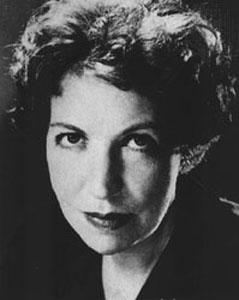A Quote by Nathaniel Hawthorne
Women are safer in perilous situations and emergencies than men, and might be still more so if they trusted themselves more confidingly to the chivalry of manhood.
Quote Topics
Related Quotes
There is what might be called a Catch-22 of hazardous occupations: The more hazardous the job, the more men; the more men, the less we care about making the job safer. The Catch-22 of hazardous occupations creates a 'glass cellar' which few women wish to enter. Women are alienated not just out of the fear of being hurt on the job, but by an atmosphere that can make a hazardous job more hazardous than it needs to be.
Men create their own gods and thus have some slight understanding that they are self-fabricated. Women are much more susceptible, because they are completely oppressed by men; they take men at their word and believe in the gods that men have made up. The situation of women, their culture, makes them kneel more often before the gods that have been created by men than men themselves do, who know what they've done. To this extent, women will be more fanatical, whether it is for fascism or for totalitarianism.
Modern motor vehicles are safer and more reliable than they have ever been - yet more than 1 million people are killed in car accidents around the world each year, and more than 50 million are injured. Why? Largely because one perilous element in the mechanics of driving remains unperfected by progress: the human being.
If you just look at the number of roles for women versus the number of roles for men in any given film, there are always far more roles for men. That's always been true. When I went to college, I went to Julliard. At that time - and I don't know if this is still true - they always selected fewer women than men for the program, because there were so few roles for women in plays. That was sort of acknowledgment for me of the fact that writers write more roles for men than they do for women.
Let's acknowledge that men reach for opportunities more quickly and more easily than women. So often as managers, we give the job to whoever starts solving the problem, to whoever jumps in. Since we know men will jump in faster than women in so many circumstances, we have to slow down and encourage more women to sit at more tables.
There is a great deal more correctness of thought respecting manhood in bodily things than in moral things. For men's ideas of manhood shape themselves as the tower and spire of cathedrals do, that stand broad at the bottom, but grow tapering as they rise, and end, far up, in the finest lines, and in an evanishing point. Where they touch the ground they are most, and where they reach to the heaven they are least.
Patriarchy is not men. Patriarchy is a system in which both women and men participate. It privileges, inter alia, the interests of boys and men over the bodily integrity, autonomy, and dignity of girls and women. It is subtle, insidious, and never more dangerous than when women passionately deny that they themselves are engaging in it.
Both men and women are conceived as merely capable of response to a situation that their society has already defined for them as sexual, and so the Arapesh feel that it is necessary to chaperon betrothed couples who are too young... with their definition of sex as a response to an external situation rather than as spontaneous desire, both men and women are regarded as helpless in the face of seduction. Parents warn their sons even more than they warn their daughters against permitting themselves to get into situations in which someone can make love to them.






































